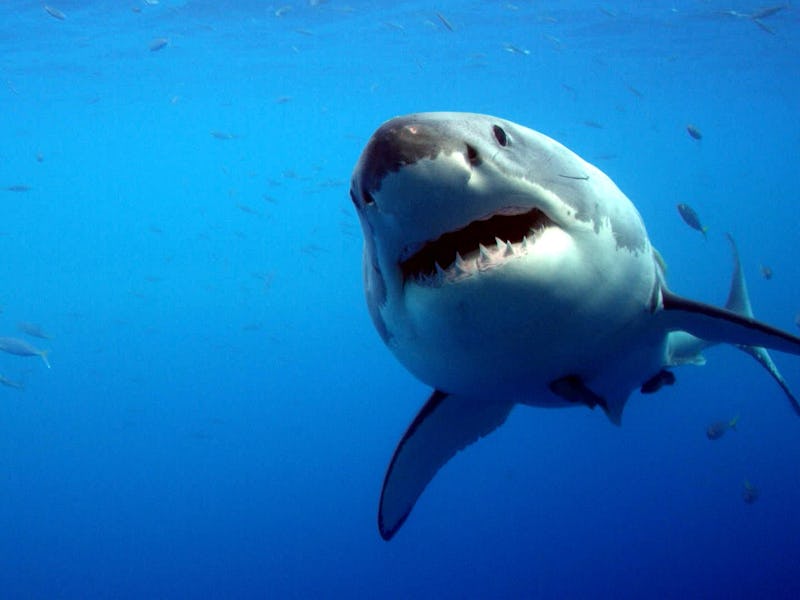61-Year-Old Man Fights Cape Cod Shark in Unconventional but Effective Way
A flurry of well-placed punches probably saved his life.

In a scene that haunts many Massachusetts vacationers’ nightmares, a 61-year-old man came face-to-face with a great white shark while swimming off the coast of Cape Cod this week. However, William Lytton, the would-be victim, surprised both the apex predator and himself with a flurry of well-placed punches that probably saved his life.
Though the Massachusetts Division of Marine Fisheries reports that Cape Cod’s shark population seems to be growing steadily, most of them aren’t looking to attack humans. But sometimes it happens. Lytton discovered this as he was swimming in an area eight to ten feet deep and suddenly felt a “beyond excruciating” pain in his leg, where a curious great white had taken a bite. He quickly fought for his life, throwing punches aimed at the shark’s gills.
It wasn’t the most conventional target for a shark punch, but it seemed to work.
Data from the University of Florida's Shark Attack File indicates that while there has been an increase in overall shark attacks since the sixties, most attacks happen in Florida, not Massachusetts
In an interview with the BBC in 2017, Ryan Johnson, a shark researcher and documentary maker, recommended that people faced with an attack shark should go for a more direct hit. “From my experience free-diving with white sharks - if you’re in that situation where you are getting attacked, you have to do everything in your power,” he said. “Punching him in the face, going for his eyes, try to keep your hands out of his mouth.” Going for the gills, he noted, was also a useful strategy.
Others say the best target isn’t the nose or face but the eyes. “As with all animal attacks, the best advice is to go for the eye,” said shark researcher David Shiffman, Ph.D., then a Ph.D. student at the University of Miami, in a 2013 interview with Smithsonian Magazine. “If you poke something in the eye, it will stop what it is doing. Sharks have a protective eyelid-like barrier called a nictitating membrane, but it’s designed to protect from a thrashing fish caught in that shark’s jaws and not from fingers.”
That Lytton had the confidence to punch the shark was likely beneficial in itself. Shark expert and former shark attack survivor Paul de Gelder previously told Inverse that the best way to prevent becoming shark bait is to avoid acting like prey in the first place. He described this when he elaborated on the process of teaching former UFC star Ronda Rousey to dive with bull sharks, a particularly aggressive species.
“It’s very step by step, you have to be comfortable in the water, and we surrounded her with sharks just to make sure she wasn’t going to freak out,” he said.
In Lytton’s case, it seems like he did the right thing. It’s one thing to remain calm and confident on a shark dive, but when the shark makes the first move, staying composed is a big ask. Fortunately for him, his punches were enough to deter the great white and provide him time to escape, although he did tear a few tendons in his wrist.
“I initially was terrified, but, really, there was no time to think,’’ Lytton said to the Associated Press “‘It doesn’t feel like I did anything heroic. A lot of this was luck.”